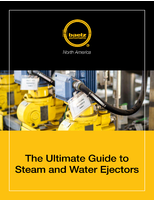Wastewater Treatment Equipment
The Clean Water Act Impact on Concrete Producers: An Explanation and Solution
When the Clean Water Act was enacted, one of the intentions of this legislation was to reduce the untreated industrial waste water burden on publically owned waste water treatment plants (POTW) so that industrial wastewater would only load the treatment plant to the same extent as ordinary household sanitary waste.
Industrial facilities that generated process wastewater had to begin pre-treatment of the water before it could be returned to the local POTW. They had to test for heavy metals, chemical oxygen demand, biological oxygen demand, pH, solvents and other chemicals that were contained in the waste water stream and then treat to ensure removal of the contaminants.
The Act also established limits on water discharged to the environment from an industrial facility property or discharged upon the grounds of the facility. There are many aspects of the act that limit and seek to control hazardous chemical discharges.
Among the chemicals and oxygen demand levels prohibited to be discharged without treatment, the Act also defined the pH limits of discharges to the environment as follows: any waste stream with a pH below 6.5 or higher than 9.0 is by definition hazardous waste. The act also set limits on total suspended solids in the water being discharged, but left the actual limits up to local and state agencies that administer the Clean Water Act on behalf of the EPA.
The above limits on pH and total suspended solids has had an impact on ready mix and precast concrete producers. Many of the concrete production plants generate large amounts of high pH process water from rinsing and cleaning of equipment. High pH water comes from rinsing the drums on the mixer trucks after returning from a delivery and from rinsing the exterior of the trucks after loading at the batch plant. Another factor is that the jobsites receiving the loads of concrete no longer allow the rinsing of the mixer trucks at the site, so the amount of concrete brought back to the production plant has been increased.
Storm water can add to the problem if the water drains into the basins designed to contain and settle out the cementitious solids. The storm water becomes high pH process water at that point.
The high pH process water also contains dissolved solids and suspended solids that do not settle out in the basins. These solids are generally not removed by filtration especially the dissolved solids. Whenever possible, the concrete producers will reuse the high pH water to batch fresh concrete. However, most state and federal paving or construction projects prohibit the reuse of the process water and specify that "Potable Water" must be used as concrete makeup water. The high pH water cannot be used for pre-wetting aggregate or dust control because it will contaminate the site.
The water may be reused for truck rinsing and cleaning provided the water is returned to the catch basins or pits.
The problem for the ready mix and to some extent the precast producers is the generation of excess process water (including storm water)that accumulates by normal business volume and specifically when the producer must use potable water in lieu of recycled water.
The producer must have an economical way to deal with this problem short of storing it or paying for it to be transported for disposal as industrial waste water. To simply discharge the water off the property can incur a liability for fines but also for future fees for remediation of the property upon which the water was discharged.
In 2011, a company operating ready mixed concrete plants was fined $740,000 for violating the Clean Water Act. The company also was required to pay $8,000,000 into a remediation fund for site clean-up at various locations
There are solutions available to the concrete producers and Fortrans is pleased to offer our products and solutions to the industry.
Fortrans Inc. and BibKo NA market self-contained pH control systems that are guaranteed to solve this problem for the producers. The modestly priced systems use low cost C02 gas to automatically lower the pH of the process water and lower the total dissolved and suspended solids to meet the Clean Water Act limits for discharge to the environment.
Fortrans pH control systems can provide outstanding control and monitoring of stored process water. The treated water may be recycled for batching concrete, pumped to wash racks, used for irrigation or dust control.
Fortrans Inc. www.fortransinc.com or BIBKO NA www.concretereclaiming.com




